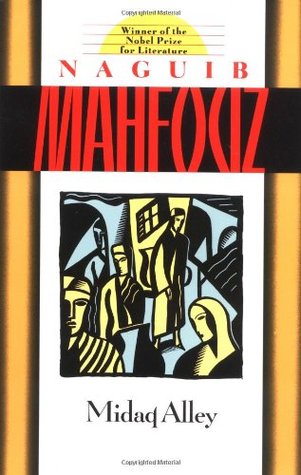Topic outline
- General
- IB English SL Overview
IB English SL Overview
IB Language A: Literature, SL 1
Mr. D. Waldoch
dwaldoch@g-cacegypt.org
Overview
IB SL English 1 is the first year of a two-year program. This year students will study two or three works each semester. The IB assessment requirement of the Individual Oral Presentation will take place after the work during the first semester. During the second semester, students will develop their Written Assignment which is externally assessed.
IB Literature candidates will be expected to demonstrate:
- an ability to engage in independent literary criticism in a manner which reveals a personal response to literature
- an ability to express ideas with clarity, coherence, conciseness, precision and fluency in both written and oral communication
- a command of the language appropriate for the study of literature and a discriminating appreciation of the need for an effective choice of register and style in both written and oral communication
- a sound approach to literature through consideration of the works studied
a thorough knowledge both of the individual works studied and of the relationships between groups of works studied - an appreciation of the similarities and differences between literary works from different ages and/or cultures
- an ability to engage in independent textual commentary on both familiar and unfamiliar pieces of writing
- a wide-ranging appreciation of structure, technique and style as employed by authors, and of their effects on the reader
- an ability to structure ideas and arguments, both orally and in writing, in a logical, sustained and persuasive way, and to support them with precise and relevant examples
Homework
Homework focuses primarily on pre-learning (reading) and practice (annotating texts, home study of poetry, home essays). Agendas and HW will posted on Moodle and longer-term assignments will be noted on the calendar there. Students are expected to check Moodle during the week and not rely solely on others to understand what the homework is. There will be times when plans change, so keep track of HW in your planners.
Grading
Your grade will be a combination of all these elements–compositions, quizzes, tests, reading journals, oral presentations, and class participation. I want you to take an active, thoughtful part in our discussions of the literature. I want you to question, argue, disagree, and discover to make this course stimulating and enjoyable for all of us.
Each semester will accumulate a large number of points. Obviously, tests, papers, and oral presentations will be weighted more than quizzes and journals. Also, formal papers will be weighted more than in-class essays. Grades are based on the percentage earned out of the total points possible.
Expectations
Students are required to bring the texts, notes, handouts, and basic materials every day. They are expected to be ready to go by the beginning of class, to take full advantage of class time, and to regularly review notes, handouts, annotated texts, etc. rather than try to “cram” it in before assessments or exams.
Discussion and analysis of the texts is often a group activity, so balanced, active participation is expected and necessary for success. Some work can be completed in study groups outside of class with the expectation that students will work with integrity (contributing actively—not copying others’ work or giving their own work to be copied).
Missed Work: Although it is not possible to recreate the experience of active participation in a class discussion, students are still responsible for any work missed during an absence. Communication with me in advance of school trips and timely meeting of responsibilities after an absence are the student’s responsibility.
Late Work: Students are encouraged to be proactive in requesting flexibility in deadlines in advance of due dates rather than turning in work late. In general, late work will be considered for credit with a 10% deduction if it is turned in one class period past the due date. After that, only partial credit is available and only for a certain time, depending on the nature of the assignment.
- Individual Oral Presentation
Individual Oral Presentation
Guidelines for the IOP
The attached documents offer ideas for the structure and evaluation of IOPs.
- Midaq Alley by Naguib Mahfouz
Midaq Alley by Naguib Mahfouz

Read the selected articles, taking notes on key ideas. These ideas will be shared in class discussions of the novel.
- A Doll's House
A Doll's House

You may want to read these notes for an overview of characters and the play.
Read and take notes on the assigned articles.
- Topic 5
Topic 5
- Topic 6
Topic 6
- Topic 7
Topic 7
- Topic 8
Topic 8
- Topic 9
Topic 9
- Topic 10
Topic 10
- Topic 11
Topic 11
- Topic 12
Topic 12
- Topic 13
Topic 13
- Topic 14
Topic 14
- Topic 15
Topic 15
- Topic 16
Topic 16
- Topic 17
Topic 17
- Topic 18
Topic 18
- Topic 19
Topic 19
- Topic 20
Topic 20
- Topic 21
Topic 21
- Topic 22
Topic 22
- Topic 23
Topic 23
- Topic 24
Topic 24
- Topic 25
Topic 25
- Topic 26
Topic 26
- Topic 27
Topic 27
- Topic 28
Topic 28
- Topic 29
Topic 29
- Topic 30
Topic 30
- Topic 31
Topic 31
- Topic 32
Topic 32
- Topic 33
Topic 33
- Topic 34
Topic 34
- Topic 35
Topic 35
- Topic 36
Topic 36
- Topic 37
Topic 37
- Topic 38
Topic 38
- Topic 39
Topic 39
- Topic 40
Topic 40
- Topic 41
Topic 41
- Topic 42
Topic 42
- Topic 43
Topic 43
- Topic 44
Topic 44
- Topic 45
Topic 45
- Topic 46
Topic 46
- Topic 47
Topic 47
- Topic 48
Topic 48
- Topic 49
Topic 49
- Topic 50
Topic 50